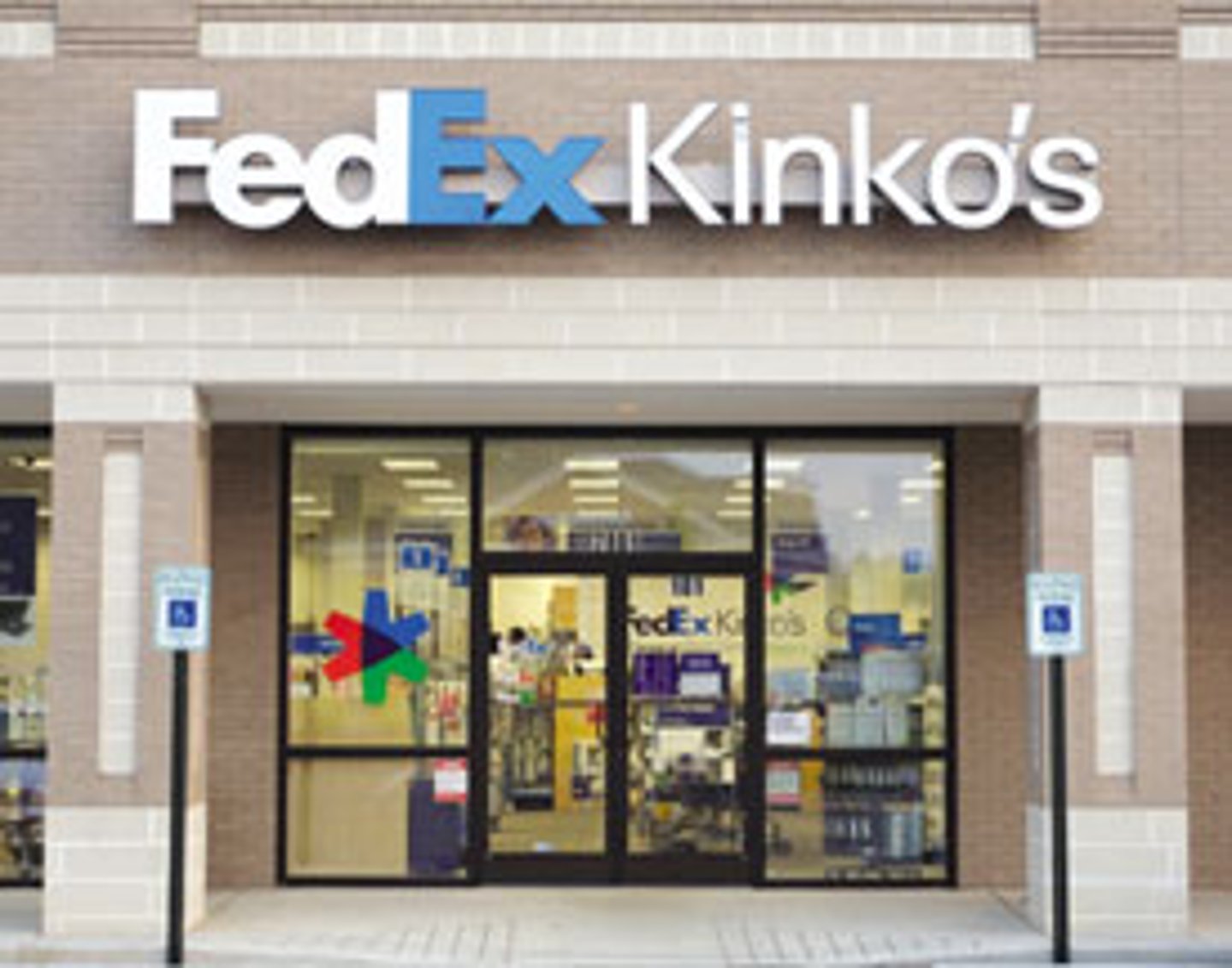FedEx Kinko’s delivers the business goods
Office products have become a key component of the overall strategy at FedEx Kinko’s as the nation’s leading provider of print and document services and overnight shipping looks for new growth.
At an accelerating pace, existing stores and hundreds of new stores are being set with an expanded assortment of office products designed to appeal to the traveling professionals and small business customers the company views as its target consumer. This year alone, FedEx Kinko’s plans to convert 110 of its existing large format stores to a design in which it offers 2,500 office products in addition to opening 300 smaller format stores that contain roughly 700 items. The company’s network of stores consists of nearly 1,700 locations, of which roughly 1,200 are the large format variety.
The assortment and presentation of merchandise in the small stores, which measure less than 2,000 square feet, is a tightly edited convenience offering of office product necessities combined with impulse items such as books, snacks and candy. In the larger stores, typically 6,000 square feet or more, merchants have displayed product with greater fiair to let customers know they can satisfy a broad range of needs and avoid a separate trip to an office products superstore, discount store or warehouse club.
“We want to be the provider of products and services for the needs of small business,” said vp of retail Jeff Heyman.
FEDEX KINKO’S| HEADQUARTERS | Memphis, Tennessee |
| 2006 SALES | $2.04 billion |
| 2006 EARNINGS | $45 million |
| STORE COUNT | 1,600e |
Accordingly, the large format FedEx Kinko’s stores group products and services into four zones: the production zone where customers have services performed for them such as large print jobs, signs and graphics or a direct mail campaign; the self-serve zone where customer scan make their own copies or print digital photos; the mobile office zone where customers can access the Internet with their own laptops, use an on-site computer, or rent by the hour a computer loaded with the latest software; and the retail zone, the one area that has continued to undergo refinement since the first of the large format stores was introduced in Orlando nearly two years ago.
Prior to then, the office products business was barely on the company’s radar. In early 2004 when FedEx Corp. bought Kinko’s, it began looking for new growth opportunities, one of which involved increasing productivity of existing square footage in Kinko’s large stores by adding an assortment of office products. Heyman, who previously worked for Office Depot in the merchandising area, proceeded to develop an assortment of items needed most often by the customers who were already visiting FedEx Kinko’s stores regularly for print and document services, but going elsewhere for their product needs.
The prototype he and other merchants developed and introduced in Orlando has expanded to St. Louis, Boston, Minneapolis, Las Vegas and San Diego. Along the way, the company has refined the product offering, expanding categories such as iPod accessories while scaling back others such as janitorial supplies, and altering the layout of the store, upgrading the interior and sharpening pricing. Some of the more recent experiments include offering Best Buy’s Geek Squad computer services in stores, Starbucks coffee and private meeting rooms that can be rented by the hour. However, much of the concept remains the same with modification based on a growing body of customer feedback.
For example, stores continue to do well with categories such as greeting cards and books, which are merchandised on wheeled fixtures for ease of movement. A similar fixture displays an assortment of travel basics to appeal to mobile professionals who may have forgotten something at home. There’s also an assortment of candy and snacks at both checkout locations in a test store and new services including passport photos and notarization.
The company’s push into office products is noteworthy for other reasons as well. “We could put FedEx Kinko’s brand on all our products because we have the scale to do so, but I believe in building the business with name brands,” Heyman said.
That strategy stands to make the company a valuable trading partner since traditional branded suppliers are seeing their business challenged by the shift toward private label taking place at office superstore chains.
FedEx Kinko’s stores will never be confused with a conventional office superstore such as the typical 20,000-square-foot stores operated by Staples, Office Depot and Office Max. That’s probably a good thing since a key priority for those operators over the past 10 years has been finding a way to differentiate.
For now, FedEx Kinko’s is happy with the size of its stores and the 2,500-SKU assortment offered. “It is the right number for us given the space we have,” Heyman said.
By keeping the product offering at that level, the company also avoids adding further operational complexity to a business in which it is just beginning to grow. Store-level employees, long accustomed to providing service, have had to learn new disciplines such as managing planograms, stocking shelves and rotating stock on perishable items such as candy and snacks. A smaller and consistent assortment across all stores simplifies those issues, makes it easier to replenish merchandise through a hybrid system of distribution centers and direct store deliveries and ensures that the company’s mobile customer base has a consistent experience regardless of the store they visit.
“Our team members in the stores are telling us they don’t have to send customers to the competition because we don’t have what they need,” Heyman said.

